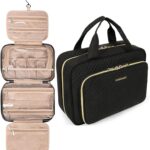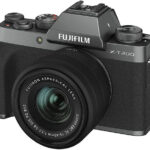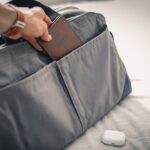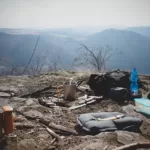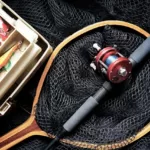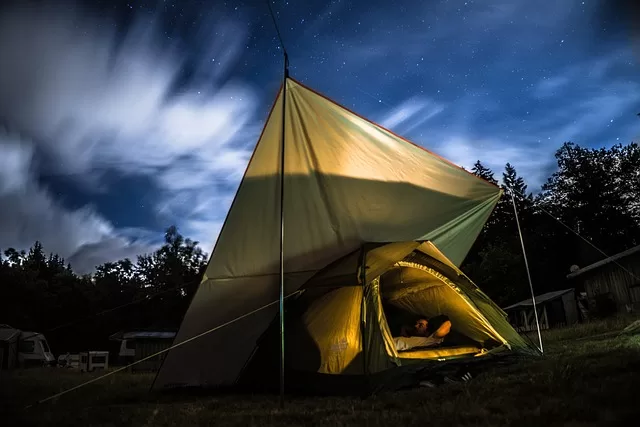It was the first time I was going on a solo backpacking trip and I would say was beyond excited and too eager to hit the trails already. Since I didn’t know how to camp alone I spent weeks researching my routes, reviewing maps, and packing my bag. Out of my excitement, I felt I should pack everything; from water purification tablets to a tent, a camping sleeping bag and pads, and a first aid and emergency kit.
Despite my meticulousness, when I got to camp I realized I had forgotten one essential piece of gear; a camping stove and cooking gear. As the sun started to set, I had no way to cook my meals or boil water. I was super hungry, and thirsty, and began to panic. Of course, I need not say that I learned the hard way that having the right gear is crucial and that I needed to always keep a checklist of my camping hiking, and backpacking gear each time I’m packing for a trip.
Being prepared and having all the necessary items with you can mean the difference between a comfortable and enjoyable trip, or one filled with mishaps and struggles. That’s why I’ve compiled this ultimate camping, hiking, and backpacking gear checklist for your next adventure. With this list, you can ensure you have everything you need to make the most of your trip and avoid unnecessary setbacks. So, whether you’re a seasoned outdoor enthusiast or a beginner just starting out, this list is for you.
Why You Need the Right Camping Hiking and Backpacking Gear for your Trip
Are you an adventurer just like me? If you’re planning a camping hiking and backpacking trip, or any form of camping at all, you know that having the right gear is absolutely essential. And no, I’m not just talking about a cool-looking backpack or a trendy pair of hiking boots (although those are important too). I’m talking about the gear that’s going to keep you safe and comfortable on the trail. Here are some of the reasons you should get the right camping hiking and backpacking gear for your next trip.
Comfort
First and foremost, the right gear can mean the difference between a fun and enjoyable trip and a miserable one. Imagine trying to sleep in a flimsy, leaky tent during a rainstorm, or trying to hike up a mountain in ill-fitting, uncomfortable shoes. Not fun, right? Investing in quality gear that’s designed to withstand the elements and support your body can make a huge difference in your overall experience.
Protection and Safety
However, the benefits of having the right gear go beyond just comfort. In some cases, it can even mean the difference between life and death. A reliable and sturdy tent can provide shelter in emergency situations like unexpected rainstorms and tempestuous weather. Getting one of these quality sleeping bags and pads can help keep you warm in cold temperatures, and proper footwear can prevent injuries on the trail.
Peace of Mind
The peace of mind that comes with being prepared is perhaps the biggest benefit of all. Knowing that you have everything you need in case of an emergency can help you relax and enjoy your trip to the fullest. If camping with buddies, you will freely engage in all the things to do when camping with friends and not be bothered. So don’t skimp on the gear, friends. Trust me, it’s worth it.
Camping Hiking and Backpacking Gear Checklist
Are you ready to hit the trails and spend some time in the great outdoors? If so, it’s important to make sure you have all the gear you need for a successful and enjoyable trip. With this ultimate camping, hiking, and backpacking gear checklist in hand, you’ll be well on your way to an unforgettable outdoor adventure. And so here’s a checklist of the ultimate camping, hiking, and backpacking gear to help you get started.
Essential Camping Hiking and Backpacking Gear
- Shelter: A tent, tarp, sleeping bag, and sleeping pad are essential items for any camping trip. They’ll provide you with a comfortable and protected place to sleep, no matter where you are. This review on the best camping tents and shelters will come in handy for making the right and easy choice.
- Clothing: It’s important to pack layers of clothing that are suitable for a range of weather conditions. This includes waterproof jackets, warm layers for cold temperatures, and comfortable, supportive hiking boots.
- Personal hygiene: Don’t forget to pack the essentials for keeping yourself clean and fresh on the trail. This includes a toothbrush, toothpaste, hand sanitizer, and insect repellent. You can also check out this ultimate camping hygiene and toiletries guide to help you stay organized.
- First aid kit: Accidents can happen on the trail, so it’s a good idea to pack a camping first aid and emergency kit with items like bandages, gauze, pain medication, tweezers, and scissors.
- Food and water: Don’t forget to pack enough water bottles and a hydration reservoir to keep you hydrated, as well as water purification tablets in case you need to treat water from natural sources. You’ll also need non-perishable food items and a stove and cooking gear for cooking.
- Navigation: Whether you prefer a map, compass, or GPS device, it’s important to have some way of navigating your way through the wilderness.
- Emergency signaling: It’s always a good idea to have a few items on hand in case of an emergency. A whistle, mirror, and flare can all be useful for signaling for help.
Items for Comfort and Convenience
- Camp chairs and camp stove: These items will help you relax and enjoy your time in the great outdoors when you get back to your campsite after hiking trails. It will give the ambiance and feeling of luxury even in the middle of nature. You can create your outdoor oasis with these top 5 camping furniture and chairs
- Headlamp or flashlight: A headlamp or flashlight is essential for navigating in the dark and enjoying camping fun things available to do at night.
- Sunscreen, hat, and sunglasses: Protect your skin and eyes from the sun’s harmful rays with these essential items.
- Hammock: A hammock is a great way to relax and enjoy the scenery.
- Multi-tool or knife: A multi-tool or knife can come in handy for all sorts of tasks on the trail.
Optional Camping Hiking and Backpacking Gear
- Camera: Capture memories and document your trip with a camera.
- Binoculars: Observe wildlife and take in the beautiful scenery with a pair of binoculars.
- Fishing gear: If you’re a fan of recreational fishing, don’t forget to pack your gear.
- Portable charger or power bank: Keep your electronic devices charged and ready to go with a portable charger or power bank.
- Books or games: Pack some entertainment for those rainy days or quiet evenings around the campfire. Here is a list of the camping Books to read.
Tips for packing all your camping, Hiking, and Backpacking Gear Checklist
It’s always a good idea to be prepared and organized when packing for a trip. This will help ensure that you have everything you need and can focus on enjoying your adventure.
Here are some tips for packing and organizing gear:
Pack items in waterproof or water-resistant bags to protect them from the elements
This is especially important if you’ll be hiking or camping in areas with a high chance of rain or other wet conditions.
Use packing cubes or dividers to keep your gear organized and easily accessible
This will help you find what you need quickly and reduce the risk of losing something at the bottom of your pack.
Distribute the weight of your pack evenly to ensure comfort while carrying
This will help prevent strain on your back and shoulders and make it easier to carry your gear for longer periods of time. Also, pack only essential and minimal items. Check out this comprehensive list of essential items to pack in your camping backpack.
Consider the climate and weather conditions of your destination when packing
Make sure to pack appropriate clothing and gear for the temperature and any potential weather challenges you may encounter.
Frequently Asked Questions on Camping Hiking and Backpacking Gear
Here are some of the frequently asked questions when it comes to camping hiking and backpacking gear to carry along for Camping trips.
What are the essential items that I need for a camping hiking or backpacking trip?
Essential items include shelters, such as a tent or tarp; clothing suitable for the weather conditions and activity level; personal hygiene items; a first aid kit; navigation tools; emergency signaling devices; and food and water.
What are some comfort and convenience items that I should consider bringing on my trip?
Comfort and convenience items can include camp chairs and a camp stove for cooking and relaxation, a headlamp or flashlight for navigating in the dark, sunscreen and other protective gear, a hammock for lounging, and a multi-tool or knife for various tasks.
Are there any optional items that I might want to bring on my trip?
Optional items can include a camera for capturing memories, binoculars for observing wildlife and scenery, fishing gear for recreational fishing, a portable charger or power bank for electronic devices, and books or games for entertainment.
What are some tips for packing and organizing my gear?
Some tips for packing and organizing your gear include using packing cubes or dividers to keep items organized and easily accessible, distributing weight evenly in your pack to ensure comfort while carrying, and using waterproof or water-resistant bags to protect your gear from the elements. It’s also a good idea to consider the climate and weather conditions of your destination when packing.
Is it better to bring a tent or a tarp for shelter on a camping trip?
It depends on your personal preferences and the specific needs of your trip. Tents are typically more enclosed and offer more protection from the elements, but they can be heavier and take up more space in your pack. Tarps are lighter and more compact but offer less protection from the elements. Ultimately, the best choice will depend on your specific needs and preferences.
Conclusion
Being prepared and having the right gear is crucial for a successful camping, hiking, or backpacking trip. Having all the necessary items with you on your adventure not only ensures that you’ll be comfortable, but it can also be a lifesaver in case of emergencies.
So, before you head out on your next outdoor adventure, be sure to check off all the items on your gear checklist. As always, it’s important to be prepared and to always follow Leave No Trace principles to protect the environment and preserve it for future generations.
And don’t forget to share your own gear-packing tips in the comments or follow our blog for more outdoor adventure inspiration.





